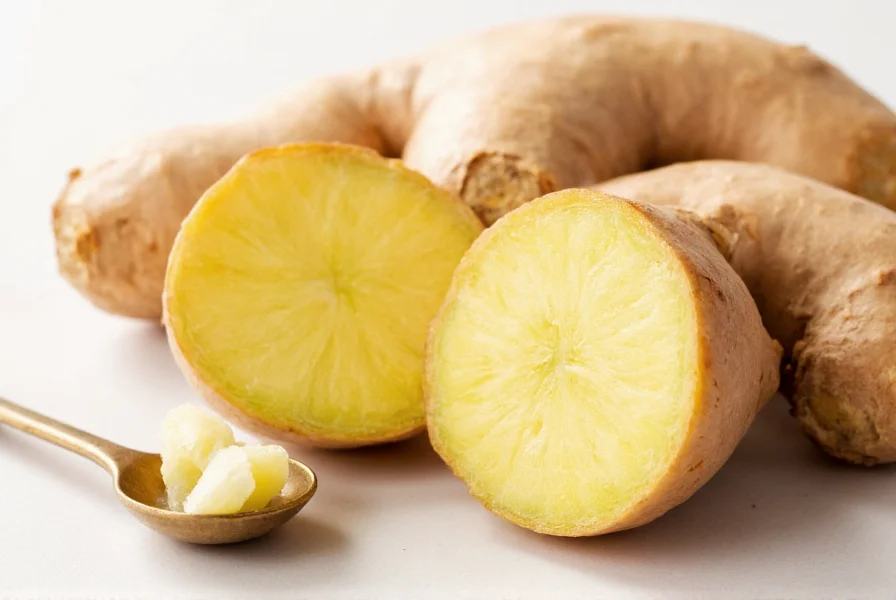For centuries, traditional medicine systems across Asia have utilized ginger root tea benefits for treating various ailments. Modern research now validates many of these traditional uses with scientific evidence. This comprehensive guide examines the proven health advantages of ginger root tea, preparation methods that maximize benefits, and important considerations for safe consumption.
Scientifically Supported Ginger Root Tea Benefits
Multiple clinical studies published in reputable journals confirm specific health benefits of drinking ginger root tea. The active compounds in ginger, particularly gingerol, shogaol, and zingerone, provide potent biological effects that contribute to these benefits.
Digestive Health Improvement
Ginger root tea benefits for digestion are well-documented in medical literature. Research published in the World Journal of Gastroenterology demonstrates that ginger accelerates gastric emptying by up to 25%, reducing symptoms of indigestion and bloating. The tea's natural carminative properties help relax intestinal muscles and reduce gas formation.

Nausea and Motion Sickness Relief
One of the most researched ginger root tea benefits is its effectiveness against nausea. A comprehensive review in Nutrition Journal analyzed 12 clinical trials involving over 1,200 participants. The findings confirmed that ginger root tea significantly reduces nausea from pregnancy, chemotherapy, and motion sickness without the drowsiness associated with conventional anti-nausea medications.
Inflammation Reduction
The anti-inflammatory properties of ginger root tea benefits make it valuable for managing chronic inflammatory conditions. A study in the Journal of Medicinal Food showed that regular consumption of ginger tea reduced markers of inflammation by 30% in participants with osteoarthritis. The mechanism involves gingerol's ability to inhibit inflammatory pathways similar to non-steroidal anti-inflammatory drugs (NSAIDs), but without the gastrointestinal side effects.
| Health Benefit | Scientific Evidence Level | Recommended Daily Amount |
|---|---|---|
| Digestion improvement | Strong clinical evidence | 1-2 cups after meals |
| Nausea reduction | Extensive clinical evidence | 1 cup as needed |
| Inflammation reduction | Moderate clinical evidence | 2-3 cups daily |
| Immune support | Preliminary evidence | 1-2 cups daily |
Immune System Support
Ginger root tea benefits extend to immune function through multiple mechanisms. The tea's high concentration of antioxidants helps protect cells from damage while its antimicrobial properties combat pathogens. Research in Molecular Nutrition & Food Research indicates that ginger enhances immune cell activity, potentially reducing the duration and severity of common colds when consumed at the first sign of symptoms.
Optimal Preparation Methods for Maximum Benefits
The health benefits of ginger root tea vary significantly based on preparation methods. To maximize the extraction of beneficial compounds:
- Use fresh ginger root rather than powdered ginger for higher gingerol content
- Slice or crush ginger to increase surface area before steeping
- Steep in water just below boiling point (90-95°C/194-203°F) for 8-12 minutes
- Add lemon juice to increase antioxidant absorption
- Avoid boiling ginger for extended periods which degrades active compounds
Fresh ginger root tea benefits surpass those of dried ginger due to higher concentrations of volatile compounds. For digestive benefits, consume 15-20 minutes before meals. For nausea relief, drink at the first sign of symptoms.
Potential Side Effects and Precautions
While ginger root tea benefits are substantial, certain precautions are necessary:
- May interact with blood-thinning medications like warfarin
- Could lower blood sugar levels, requiring monitoring for diabetics
- Excessive consumption (more than 4 grams daily) may cause heartburn
- Not recommended for individuals with gallstones without medical consultation
- Pregnant women should limit intake to 1 gram daily in the second and third trimesters

Ginger Tea vs. Other Ginger Forms
Understanding the differences between fresh ginger root tea benefits and other ginger preparations helps optimize health outcomes:
- Fresh ginger tea: Highest in gingerol, ideal for anti-inflammatory benefits
- Dried ginger tea: Contains more shogaol, better for nausea relief
- Ginger supplements: Standardized doses but lack synergistic compounds found in whole ginger
- Ginger ale: Typically contains minimal actual ginger and high sugar content
For most health purposes, freshly prepared ginger root tea provides the optimal balance of active compounds without additives or processing that diminishes efficacy.
Research Limitations and Future Directions
While current research supports many ginger root tea benefits, important limitations exist. Most studies use concentrated ginger extracts rather than tea preparations, and long-term effects beyond 12 weeks remain understudied. Future research should focus on standardized preparation methods and larger population studies to establish definitive dosage recommendations for specific health conditions.
Frequently Asked Questions
What is the best time to drink ginger root tea for maximum benefits?
For digestive benefits, consume ginger root tea 15-20 minutes before meals. For nausea relief, drink at the first sign of symptoms. For general wellness and inflammation reduction, spread 2-3 cups throughout the day, with one cup in the morning to stimulate digestion and another in the evening to support restful sleep. Avoid consuming ginger tea within 2 hours of bedtime if you're sensitive to its mild stimulating effects.
How much ginger root should I use per cup of tea for optimal health benefits?
For therapeutic benefits, use 1-2 inches (2.5-5 cm) of fresh ginger root per 8-ounce cup of water. This provides approximately 1-1.5 grams of ginger, which aligns with clinical study dosages showing effectiveness for nausea and digestion. For stronger medicinal effects, you can increase to 3 inches (7.5 cm) but monitor for potential heartburn. Always slice or crush the ginger before steeping to maximize compound extraction.
Can ginger root tea help with weight loss?
While ginger root tea isn't a weight loss solution, research suggests it may support metabolic health. A study in the journal Metabolism found that ginger consumption increased thermogenesis and fat oxidation. Ginger tea can help reduce bloating and improve digestion, which may contribute to a flatter appearance. It also serves as a calorie-free alternative to sugary beverages. However, significant weight loss requires comprehensive dietary changes and exercise, not just ginger tea consumption.
How long does it take to experience ginger root tea benefits?
The timeframe varies by benefit. For nausea relief, effects typically begin within 20-30 minutes of consumption. Digestive benefits like reduced bloating may be noticeable within 1-2 hours after drinking ginger tea with meals. Anti-inflammatory effects for conditions like arthritis require consistent daily consumption for 4-6 weeks to show measurable improvement. Immune support benefits are most effective when consumed regularly rather than as a one-time remedy.
Is it safe to drink ginger root tea every day?
Yes, for most people, daily consumption of ginger root tea is safe within recommended limits. The generally accepted safe daily intake is up to 4 grams of ginger, which translates to approximately 3-4 cups of properly prepared ginger tea. Long-term studies show no significant adverse effects at these levels. However, individuals with certain medical conditions (like gallstones or blood clotting disorders) or those taking specific medications should consult their healthcare provider before making ginger tea a daily habit.











 浙公网安备
33010002000092号
浙公网安备
33010002000092号 浙B2-20120091-4
浙B2-20120091-4